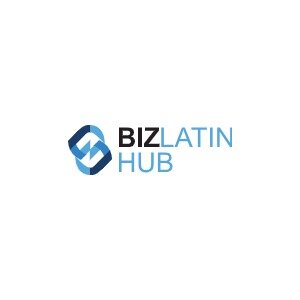Best FDA Law Lawyers in Montevideo
Share your needs with us, get contacted by law firms.
Free. Takes 2 min.
List of the best lawyers in Montevideo, Uruguay
About FDA Law in Montevideo, Uruguay
FDA Law in Montevideo, Uruguay refers to the legal framework and regulatory oversight concerning the approval, commercialization, labeling, importation, and monitoring of food, drugs, cosmetics, and medical devices. Uruguay does not have an agency directly called the “FDA” like the United States, but equivalent oversight is provided mainly through the Ministry of Public Health (Ministerio de Salud Pública, MSP) and related government entities. These bodies set the standards for public health, consumer safety, and trade of related products within Montevideo and across Uruguay.
Why You May Need a Lawyer
Legal guidance is often necessary when navigating FDA-related issues in Montevideo due to complex regulations that govern the production, importation, distribution, and advertising of health-related products. Common scenarios where people engage a lawyer include:
- Registering new pharmaceuticals, medical devices, or food products for commercial distribution
- Dealing with compliance or regulatory inspections initiated by governmental bodies
- Responding to product seizures, recalls, or official warnings
- Drafting or reviewing contracts with manufacturers or distributors
- Managing imports and exports in compliance with health and safety standards
- Resolving disputes or defending against allegations of noncompliance or mislabeling
- Seeking guidance during product approval or clinical trial applications
- Addressing issues related to advertising or marketing claims for health products
Local Laws Overview
Uruguay has established a robust set of regulations that mirror global standards for health and safety. In Montevideo, key legal aspects include:
- The Ministry of Public Health (MSP) oversees the registration, classification, and surveillance of drugs, biologics, food supplements, and medical devices.
- All medicines and health products must be registered before commercialization, with an assessment of safety, efficacy, and quality.
- Importers must comply with both licensing requirements and documentation validation to bring products into Uruguay.
- Labeling of food and drugs must follow strict guidelines regarding ingredients, warnings, and claims, always in Spanish.
- The sale and advertising of health products is regulated to prevent misleading information and protect public health.
- There are specific protocols for conducting clinical trials, obtaining ethical approvals, and reporting adverse reactions.
- Enforcement actions may include fines, product withdrawal from the market, or criminal liability in severe cases.
Frequently Asked Questions
What government agency is responsible for food and drug regulation in Montevideo?
Oversight is provided primarily by the Ministry of Public Health (Ministerio de Salud Pública, MSP), which supervises compliance for food, pharmaceuticals, medical devices, and cosmetics.
Do I need to register my product before selling it in Montevideo?
Yes, all medicines, medical devices, cosmetics, and most food products must be registered and approved by the MSP before they can be lawfully marketed in Uruguay.
How long does the product registration process take?
The timeframe varies based on product type and the completeness of submitted documentation. For some pharmaceuticals, it can take several months to over a year.
Can I market dietary supplements the same way as in the US or Europe?
No, Uruguay has its own classification system and requirements. Certain ingredients or health claims may be prohibited locally even if allowed elsewhere.
What are the main requirements for product labeling?
Labels must be in Spanish and include mandatory information such as composition, dosage, warnings, manufacturer details, and expiration dates, among others.
Who is responsible for product safety monitoring after commercialization?
The MSP conducts post-market surveillance, but manufacturers and importers must also report adverse effects and cooperate with inspections or investigations.
Are there special rules for children's health products?
Yes, additional safety and quality standards apply to products intended for children, and stricter marketing and labeling regulations are enforced.
How are clinical trials regulated?
Clinical trials require prior approval from the MSP and must comply with ethical guidelines. Informed consent from participants and registration of the study are mandatory.
What are the penalties for violating FDA-related laws in Uruguay?
Penalties range from administrative fines and warning letters to product seizure or criminal prosecution for severe violations, such as endangering public health.
Do I need a local agent or partner to register products in Montevideo?
Foreign companies usually need to appoint a local representative to interact with regulatory authorities and ensure compliance with local regulations.
Additional Resources
If you require further information or assistance regarding FDA-related laws in Montevideo, you may contact or consult:
- The Ministry of Public Health (Ministerio de Salud Pública, MSP)
- The National Medicines Agency (Agencia Nacional de Vigilancia de Medicamentos)
- Chambers of commerce and local trade associations for pharmaceuticals, food, and medical devices
- Local law firms specializing in food, drug, and health law
- Uruguayan Association of Pharmacists and related professional organizations
Next Steps
If you need legal assistance regarding FDA Law in Montevideo, start by identifying the specific issue or product type you are dealing with. Collect all relevant documentation, such as product formulas, labels, marketing materials, and any correspondence with health authorities. Contact a qualified local lawyer with experience in FDA-related matters for an initial consultation. Legal professionals can guide you through registration, compliance, defense, or any dispute resolution, helping you avoid costly pitfalls. You can also reach out to relevant government agencies to obtain official guidance or clarification on procedures and requirements.
Lawzana helps you find the best lawyers and law firms in Montevideo through a curated and pre-screened list of qualified legal professionals. Our platform offers rankings and detailed profiles of attorneys and law firms, allowing you to compare based on practice areas, including FDA Law, experience, and client feedback.
Each profile includes a description of the firm's areas of practice, client reviews, team members and partners, year of establishment, spoken languages, office locations, contact information, social media presence, and any published articles or resources. Most firms on our platform speak English and are experienced in both local and international legal matters.
Get a quote from top-rated law firms in Montevideo, Uruguay — quickly, securely, and without unnecessary hassle.
Disclaimer:
The information provided on this page is for general informational purposes only and does not constitute legal advice. While we strive to ensure the accuracy and relevance of the content, legal information may change over time, and interpretations of the law can vary. You should always consult with a qualified legal professional for advice specific to your situation.
We disclaim all liability for actions taken or not taken based on the content of this page. If you believe any information is incorrect or outdated, please contact us, and we will review and update it where appropriate.












